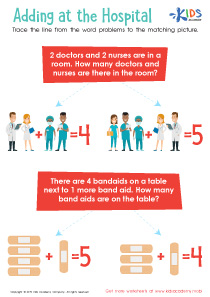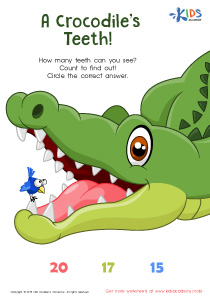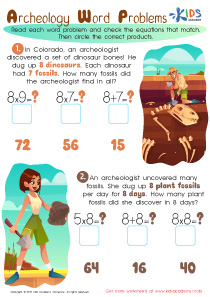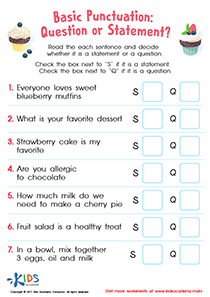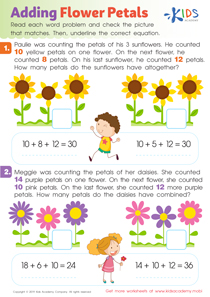Normal Grade 1 Money Word Problems Worksheets
1 filtered results
-
From - To
Introducing our Educational Downloadable Worksheets designed specifically for Grade 1 students, focusing on Normal Money Word Problems. These engaging and interactive worksheets are crafted to help young learners understand the basics of money, including identifying coins, counting money, and solving simple real-life transactions. Each worksheet is tailored to reinforce mathematical concepts through practical applications, ensuring a fun and educational experience. Perfect for both classroom use and home schooling, these worksheets will build a strong foundation in financial literacy from an early age. Empower your child's learning journey with our meticulously designed resources!
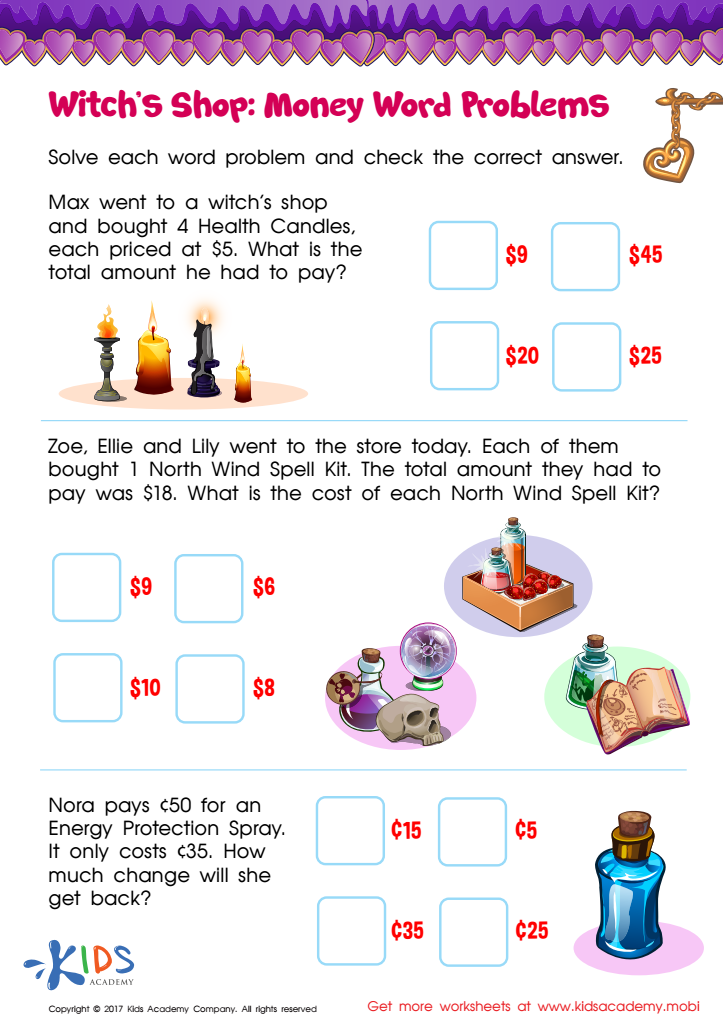

Money Word Problems Printable
The Importance of Educational Homework Sheets on Money Word Problems for Grade 1 Students
In the formative years of education, particularly in Grade 1, instilling a strong foundation in basic mathematics is crucial. Among the various aspects of math taught at this level, understanding money through word problems is particularly significant. Educational homework sheets specifically designed to tackle money word problems play an essential role in this learning process. These worksheets not only enhance numerical skills but also introduce young learners to real-world applications of mathematics.
Engagement and Practical Application
One of the primary advantages of using educational homework sheets on money word problems is that they provide a context that is both engaging and relatable for children. At the age of six or seven, children are beginning to understand the concept of money in everyday situations, such as shopping with parents or saving pocket money. Homework sheets that incorporate scenarios involving money, such as calculating change or splitting amounts, allow children to make connections between their math skills and real-life situations. This not only keeps them engaged but also helps them understand the practical use of math in their daily lives.
Building a Mathematical Foundation
Money word problems help in building a strong mathematical foundation. These problems often require the application of basic arithmetic operations like addition and subtraction, which are key skills in Grade 1. By repeatedly solving these types of problems, children reinforce their understanding and fluency in these operations. Educational homework sheets provide a structured way for students to practice these skills, ensuring that they get ample practice outside the classroom setting.
Development of Problem-Solving Skills
Another significant benefit of money word problems is the development of problem-solving skills. These problems often present scenarios that require critical thinking and decision-making. For instance, a typical problem might ask, “If you have 5 coins of 1 dollar each and you buy a toy for 3 dollars, how much money will you have left?” Solving such problems helps children learn how to approach a problem, think through the steps involved in solving it, and come up with a solution—all essential skills in both academic and real-world contexts.
Enhancing Cognitive Abilities
Educational homework sheets are also instrumental in enhancing cognitive abilities. Working through money word problems enhances memory, as children need to remember the steps they need to take to solve the problem. Additionally, it improves their attention to detail as they learn to read the problems carefully to understand what is being asked and figure out the necessary calculations.
Preparation for Future Mathematical Concepts
Lastly, early exposure to money word problems prepares children for more complex mathematical concepts they will encounter later in their educational journey. Concepts such as decimals, multiplication, division, and even basics of economics are rooted in the fundamental understanding of how money works. The skills developed while solving Grade 1 level money word problems lay down a pathway that leads to more advanced topics effortlessly and with greater confidence.
Incorporation in Daily Routine
Educational homework sheets are particularly useful because they can be easily incorporated into a child's daily routine. Regular practice on these worksheets can help turn abstract concepts into something children understand and can apply. The repetition not only aids in retention but also in the application of these concepts in varied scenarios, thereby reinforcing learning through practice.
Parental Involvement
Furthermore, these worksheets encourage parental involvement, which is crucial at this stage of a child’s educational development. When parents help their children with homework sheets, it gives them a direct insight into what their children are learning and how well they are understanding the concepts. This can lead to better support from parents, as they can discuss real-life money handling which reinforces the lessons learned through the worksheets.
Customization and Creativity
Another benefit of educational homework sheets is that they can be customized to the level of the individual child. Teachers and parents can choose worksheets that are either more challenging or simpler, depending on the child's proficiency and progress, making these tools highly adaptable to individual learning paces. Moreover, these worksheets often incorporate creative elements such as colorful graphics, puzzles, and games that make learning about money exciting and fun for young students.
Conclusion
In essence, educational homework sheets on money word problems for Grade 1 students are not just about learning to count coins or notes; they are about building a comprehensive skill set that spans numerical fluency, problem-solving, cognitive development, and practical application. By integrating these worksheets into the educational curriculum, educators and parents can provide children with the tools they need to navigate both their academic and everyday lives with confidence and competence. As young learners grow to understand the value and use of money, they also cultivate a broader range of skills that will benefit them across all subjects and into their adult lives.
 Assign to the classroom
Assign to the classroom

